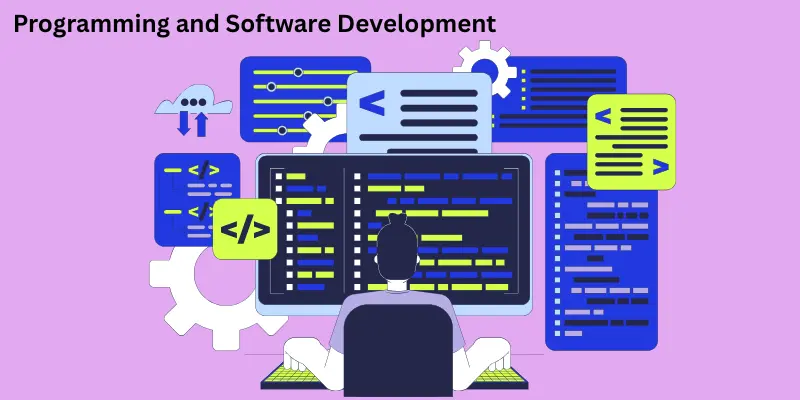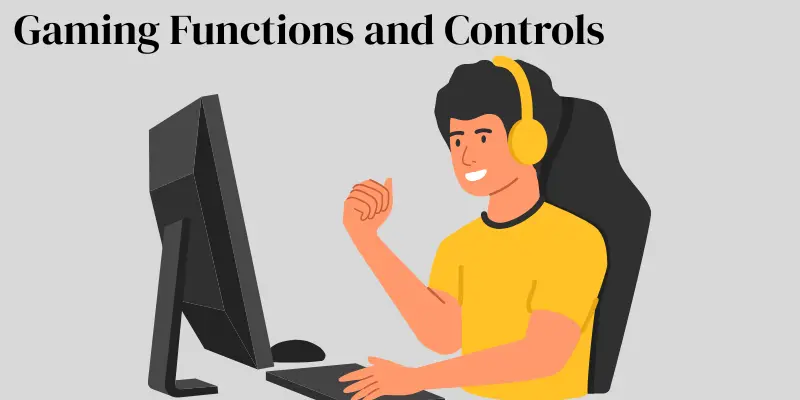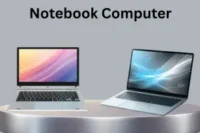Uses of Computer Keyboard in Daily Life: A Complete Guide
Published: 10 Oct 2025
Have you ever thought about how much you rely on a keyboard every day? It’s more than just typing words. From writing documents and searching online to playing games and using shortcuts, the keyboard helps you do almost everything on a computer. In this guide, we will look at the top uses of the computer keyboard and why it’s an essential tool for work, school, and daily life.
What is the use of a keyboard?
A keyboard is one of the most important parts of a computer. It allows you to type letters, numbers, and symbols on the screen. You can use it to write documents, send emails, or chat with friends online. Without a keyboard, writing on a computer would be very hard.
The keyboard is also useful for many other tasks. You can use it for gaming, shortcuts, and commands. It helps in searching the internet, filling forms, and even controlling software. This makes the keyboard not just for typing but a powerful tool for everyday computer work.
Important Uses of Keyboard in Computer
The computer keyboard is an essential tool that allows us to interact with a computer. It makes typing, controlling functions, and performing different tasks simple and quick. Here are its main uses of keyboard:
- Typing and Writing Text
- Operating System Commands
- Programming and Software Development
- Productivity with Keyboard Shortcuts
- Gaming Functions and Controls
- Navigating Apps and Interfaces
- Creative Design and Media Editing
- Online Searches and Web Browsing
- Data Entry and Numerical Calculations
- Using Symbols, Emojis, and Special Characters
- Passwords, Logins, and Online Security
- Accessibility and Support for All Users
Typing and Writing Text

The main use of a keyboard is typing and writing text. You can use it to write emails, school assignments, office documents, or even simple notes. It makes communication easier by letting you quickly put your thoughts into words on a computer screen.
- Used for writing documents and reports
- Helpful for typing emails and messages
- Lets students write assignments and projects
- Used for blogging and content writing
- Makes online communication easier
Operating System Commands
Keyboards are also used to give commands to the operating system. With just a few keys, you can control your computer without using a mouse. This makes work faster and helps you open programs or perform tasks quickly.
- Press keys to open start menu
- Use shortcuts to switch between apps
- Control settings like volume or brightness
- Shut down or restart the computer
- Open search to find files or apps
Programming and Software Development

A keyboard is very important for programming and software development. Programmers use it to write code, fix errors, and run commands. Without a keyboard, creating software or apps would be slow and hard.
- Write code in different languages
- Use shortcuts to save time
- Debug and fix errors quickly
- Run commands to test programs
- Navigate coding tools and editors
Productivity with Keyboard Shortcuts
Keyboard shortcuts make work faster and easier. Instead of using the mouse for every task, shortcuts save time and effort. They help in writing, editing, and managing files with just a few key presses.
- Copy, cut, and paste text quickly
- Undo and redo actions fast
- Switch between open windows
- Save and open files in seconds
- Take screenshots instantly
Gaming Functions and Controls

Keyboards play a big role in gaming. They give players control over movement, actions, and shortcuts. Many games depend on quick key presses for speed and accuracy. A keyboard makes gaming smooth and more enjoyable.
- Move characters in different directions
- Control game settings and menus
- Use special keys for quick actions
- Type and chat with other players
- Create custom key controls for better play
Navigating Apps and Interfaces
Keyboards make it easy to move around apps and programs. Instead of only using a mouse, you can press keys to open, switch, or close apps. This saves time and makes work faster.
- Open apps with shortcut keys
- Switch between different windows
- Close programs quickly
- Search inside apps easily
- Move through menus and options
Creative Design and Media Editing
Keyboards are also helpful in creative work like design, photo editing, and video editing. Special shortcuts save time and make tasks easier. Designers and editors use keys to work faster and more smoothly.
- Use shortcuts in Photoshop and design apps
- Cut, copy, and paste elements quickly
- Control video playback and editing tools
- Switch between tools with one key
- Save and export projects faster
Online Searches and Web Browsing
A keyboard makes searching the internet quick and simple. You can type words, use shortcuts, and move between pages with ease. It helps you find information, open websites, and control your browser faster.
- Type search queries in Google or Bing
- Use shortcuts like Ctrl + T to open new tabs
- Refresh pages with F5
- Navigate between links using arrow keys
- Use Ctrl + L to jump to the address bar
Data Entry and Numerical Calculations
A keyboard is very useful for entering numbers and doing quick calculations. The number keys and numeric keypad make typing data easy. People use it in offices, schools, and shops to save time and avoid mistakes.
- Enter numbers in spreadsheets
- Type phone numbers and IDs
- Do quick math with calculator apps
- Fill forms with numeric details
- Use Num Lock for faster data typing
Using Symbols, Emojis, and Special Characters
Keyboards are not only for letters and numbers. They also let you use symbols, emojis, and special characters. These make typing more fun, clear, and useful in daily tasks. You can use them in emails, chats, coding, and documents.
- Add @ in emails
- Use # for hashtags
- Insert emojis in chats
- Type currency signs like $ or €
- Write math symbols like % or +
- Use special marks for passwords
Passwords, Logins, and Online Security
A keyboard plays an important role in keeping your accounts safe. You use it to type usernames, passwords, and security codes. Strong passwords with symbols, numbers, and letters help protect your online accounts. Without a keyboard, safe login and online security would be difficult.
- Enter usernames and passwords
- Add symbols like ! or % for stronger security
- Type PINs and codes for banking or apps
- Use Caps Lock for uppercase letters
- Log in to websites and accounts safely
Accessibility and Support for All Users
A keyboard is not just for typing; it also helps people with special needs use computers. Many features and shortcuts make it easier for everyone to access technology. From screen readers to sticky keys, the keyboard gives support to all users, making computers more inclusive.
- Use shortcut keys for easier control
- Help people with vision problems using screen readers
- Sticky keys support those who can’t press two keys together
- On-screen keyboards for touch users
- Assistive commands make computers friendly for all
The Power of Keyboard Shortcuts
Keyboard shortcuts save time and make work faster. With just a few keys, you can copy, paste, or switch between apps. They reduce the need to use the mouse again and again. Shortcuts improve speed, focus, and productivity in daily computer tasks.
Keyboard Hacks for Better Efficiency
Keyboard hacks make computer work easier and faster. Tricks like using shortcuts, customizing keys, or using the function row can save time. These hacks reduce effort and help you stay focused. With smart keyboard use, daily tasks become smoother and more efficient.
Keyboard vs. Touchscreen: Which One Is Better?
Keyboards are faster for typing and better for long tasks like writing or coding. Touchscreens are easier for quick actions, browsing, and mobile use. A keyboard offers accuracy, while a touchscreen gives flexibility. The better choice depends on what you need—speed and precision or convenience and mobility.
Conclusion
The uses of a computer keyboard go beyond simple typing. It helps in writing documents, entering data, gaming, creating shortcuts, and controlling computer functions. Knowing these uses is important because it improves speed, accuracy, and productivity. A keyboard isn’t just a tool—it’s the bridge between you and your computer.
FAQs
The single most important use of a keyboard is typing text and commands. It allows users to write documents, search online, and interact with the computer easily.
Yes, using a keyboard can improve productivity by making typing, editing, and navigation faster. Keyboard shortcuts save time and help you work more efficiently.
There are many uses of a keyboard, including typing, gaming, programming, data entry, and using shortcuts. The exact number varies, but it’s a key tool for most computer tasks.
Yes, different types of keyboards can change how you use them. For example, gaming keyboards have extra keys for speed, while ergonomic ones reduce hand strain for long typing.
The four main functions of a keyboard are typing letters, entering numbers, using symbols and special characters, and controlling apps or system commands. These functions make it a complete tool for work, study, and daily computer use.
The keyboard is important because it’s the main input device that lets you type, control commands, and interact with a computer. Without it, daily tasks like writing, searching, or gaming would be slow and difficult.

- Be Respectful
- Stay Relevant
- Stay Positive
- True Feedback
- Encourage Discussion
- Avoid Spamming
- No Fake News
- Don't Copy-Paste
- No Personal Attacks

- Be Respectful
- Stay Relevant
- Stay Positive
- True Feedback
- Encourage Discussion
- Avoid Spamming
- No Fake News
- Don't Copy-Paste
- No Personal Attacks





